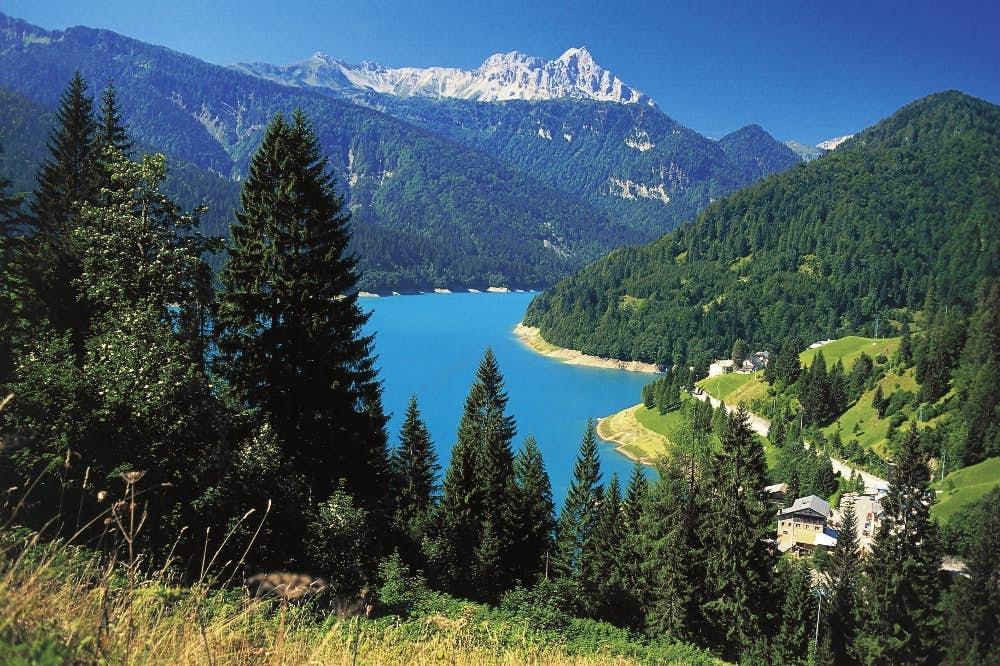
In our Green Pearls® newsletters, we share details about our hotels and destinations along with their green initiatives.
We have dedicated our new series to the hoteliers who are committed to more sustainability in tourism and who continue to inspire us with their ideas on a daily basis.
Thailand is often underestimated when it comes to its sustainable efforts, however, it is setting an example globally through the projects that King Bhumibol Adulyadej, who passed away in 2016, initiated more than 50 years ago. We have just reported on some of his projects in our newsletter.
Today’s first part of the journey takes us to Thailand, or more precisely to the island of Koh Phi Phi on Phuket. There you will find the Eco-Luxury Resort Zeavola. The motto of the resort is “back to simplicity”, it is modeled on a Thai village and endeavors to offer its guests authentic and local experiences, combined with the desire to strengthen intercultural exchange.
Florian Hallermann
Since 2008, Florian Hallermann has been the administrator and General Manager of the resort. After being responsible for eight hotel openings throughout his career, he found his destiny in Zeavola. Florian Hallermann grew up in a very environmentally-conscious family in Vienna, so it was a matter of the heart for him and also for the owner of the Zeavola to focus on sustainability. One of his first official acts as General Manager was to abolish plastic toiletries. He changed everything to regionally produced refillable ceramic bottles and was able to save about half a million plastic bottles over the last twelve years! This was the beginning of an ever-increasing shift towards sustainability. Over time, Florian Hallermann has learned to listen to the voice of nature. The Zeavola is embedded in a very fragile ecosystem and it is vital to listen to nature as a guide. Every step against it has consequences. Howevere, Florian Hallermann is not only concerned with the environment, but also about the surrounding communities as well as the hotel employees and their families. The Owners and General Manager attach great importance to socially acceptable working conditions that benefit everyone; happy employees also increase guest satisfaction.
His biggest challenge in implementing sustainable projects is the lack of knowledge about the latest technologies and practices. There is no technical manager, so initiative and creativity are required to keep up to date and find new technologies.
Florian Hallermann has achieved a lot, his sustainable initiatives have been awarded worldwide. He dedicates his life and work to make tourism more sustainable.
He has written a book about his experiences. Little Green Book
 |
| Lake Sauris in the Carnic Alps. Image by DeAgostini / Getty Images. |
A Slovenian Family Living Sustainability in Friuli
Josko Sirk, a pioneer and an inspiring personality
The Friuli is a hidden landscape in the northeast of Italy and belongs to the Friuli-Venezia Giulia region. The Relais la Subida is situated here in the middle of dense forests and rolling hills. It also has an Osteria and a starred restaurant.
When he was only sixteen years old, Josko Sirk’s father passed away and left him an Osteria in Cormons on the Slovenian border. The family, whose origins actually lie in Slovenia, have called the Collio, the border area with Slovenia, home for more than 500 years.
The young couple, Josko and Loredana Sirk, had a dream to make the Osteria a unique and sustainable place, while combining Slavic and regional cuisine. The vision was to serve what the surrounding soil and the seasons had to offer, and to do it creatively.
Michelin Guide and a star
Their perfect implementation of regional and seasonal cuisine and overall success proved them right and their restaurant was awarded a star by the Michelin Guide.
In 1983, Josko and Loredana designed the Relais La Subida as a place for green tourism. It is situated in a dense, mixed forest with the idea to model the hotel on a small, typical farm settlement. The first “della Nonna” buildings with their white walls and warm terracotta or wooden floors exude the charm of long-forgotten times and the newer “Case del Bosco” enchant with a view into the treetops. Guests sleep in a four-poster bed in the hayloft or relax in a comfortable tub bath surrounded by tall grasses. Josko and his son Mitja also revived the old Acetaia tradition – vinegar production. The process begins with the selection of the best Ribolla-Gialla grapes, followed by two summers of natural fermentation. Traditional Sirk vinegar has a total production time of 5 years! The Sirks see their vinegar as an independent, valuable product and not only a by-product of wine.
Mitja also cultivates the local vineyards and, in accordance with the family philosophy, produces a Friulano wine that is regional and sustainable.
Sustainability has many facets and approaches, in the coming months we will continue to introduce more people and the driving forces behind it.